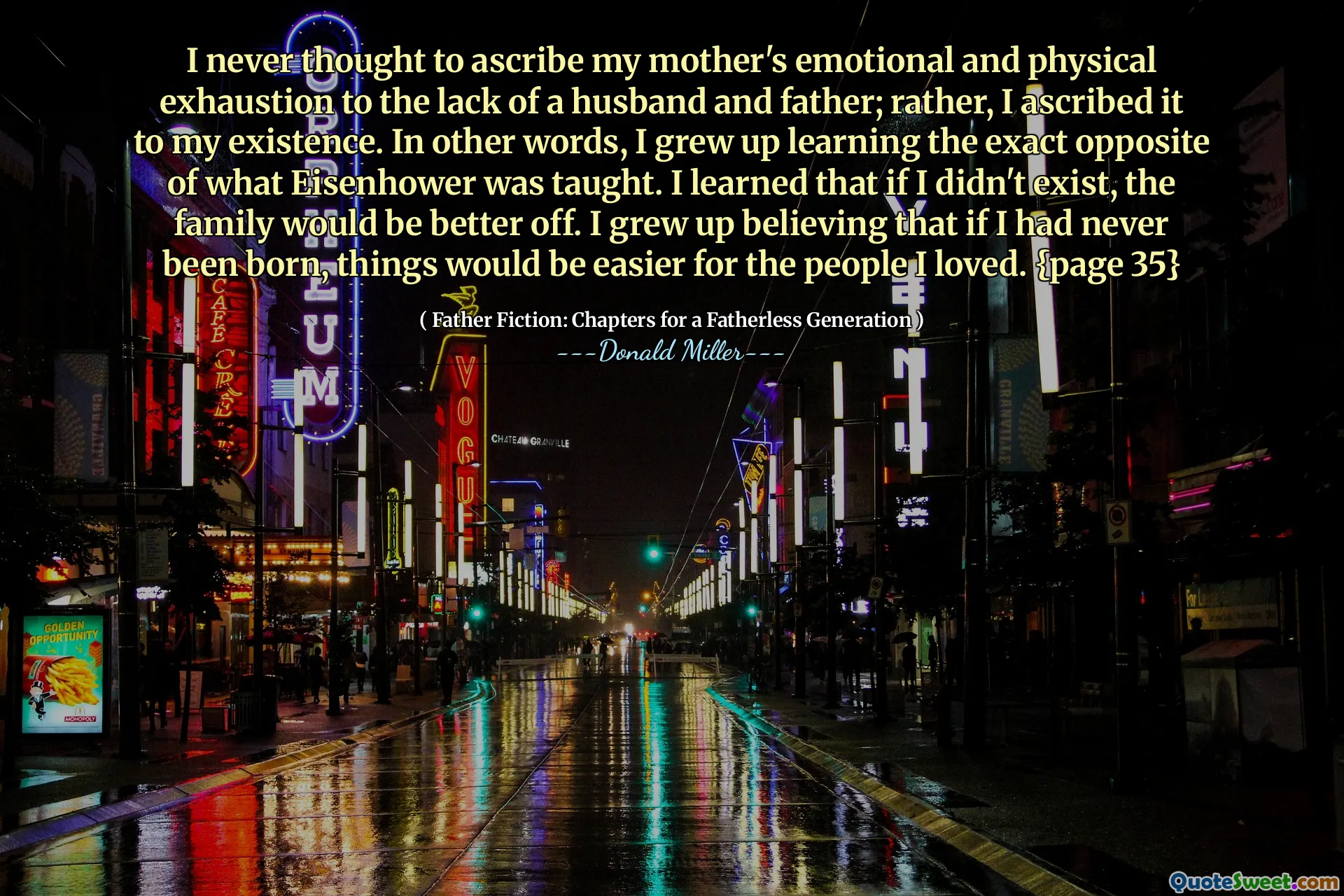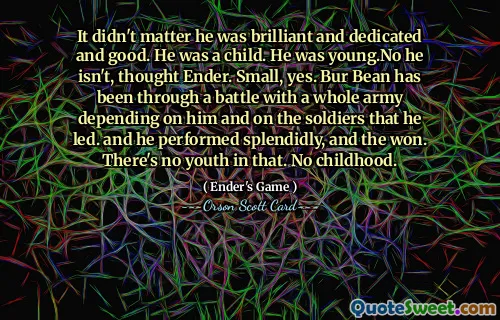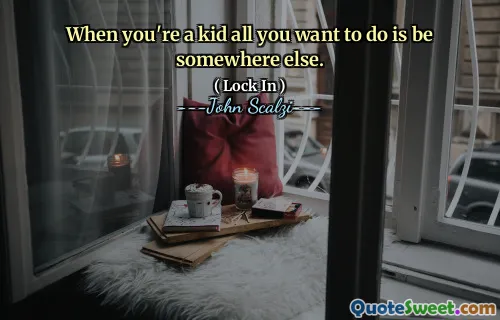
I never thought to ascribe my mother's emotional and physical exhaustion to the lack of a husband and father; rather, I ascribed it to my existence. In other words, I grew up learning the exact opposite of what Eisenhower was taught. I learned that if I didn't exist, the family would be better off. I grew up believing that if I had never been born, things would be easier for the people I loved. {page 35}
This quote from Donald Miller's "Father Fiction: Chapters for a Fatherless Generation" dives deeply into a painful psychological reality faced by many children raised without a father figure. It highlights not only the emotional weight carried by a mother stressing under the absence of a partner but also the child's burden of guilt and self-blame for that strain. The narrator reflects on the reversal of perspective from that of Eisenhower's, implying that where Eisenhower might have found strength or justification, the narrator found self-negation and internalized sibling erosion of self-worth.
The raw honesty expressed forces the reader to confront the silent suffering carried by children who grow up questioning their own value and wondering if their very existence is a source of hardship. It reveals how the absence of a critical figure, like a father or husband, can distort family dynamics and perceptions, leaving children with heavy, destructive thoughts. However, the quote also implicitly points toward the need for understanding, compassion, and better emotional support structures. It suggests that healing requires untangling misplaced guilt and reshaping identity beyond family circumstances.
The personal turmoil conveyed here resonates with many who experience dysfunctional family setups and highlights why social narratives around fatherlessness are so vital. It challenges readers to reconsider how societal, familial, and individual stories intertwine, particularly the kind we internalize about our worth and impact on loved ones. In essence, this is a powerful examination of pain, misunderstanding, and the journey toward self-acceptance.





